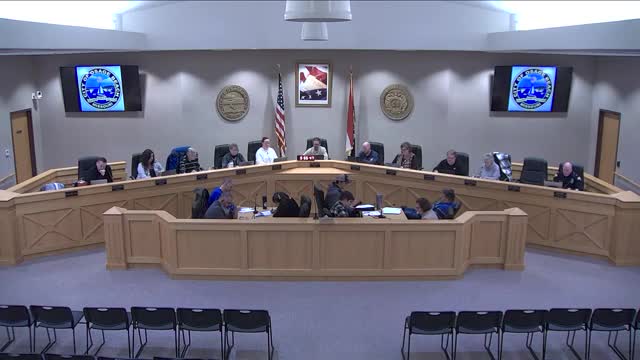Osage Beach board gives first reading to ordinance on outside sewer connections after extended debate
Get AI-powered insights, summaries, and transcripts
Subscribe
Summary
The Board of Aldermen gave first reading to an ordinance (Sewage Systems, section 710.180) creating a recorded utility-service covenant for properties outside the city that tie into Osage Beach sewer, after lengthy discussion over staff authority, annexation implications and system safeguards.
The Osage Beach Board of Aldermen gave first reading to an ordinance establishing a recorded utility-service covenant for outside-city sewer connections (Sewage Systems, section 710.180) after an extended discussion about process, enforcement and the board’s future role.
City Attorney Cole Bradbury told the board the ordinance and an accompanying example agreement provide a mechanism for outside properties that want to connect to city sewer service while clarifying the city’s cost and operational exposure. Bradbury said staff and public works prepared a life-cycle cost analysis showing why maintaining grinder pump stations outside city limits is expensive.
Aldermen questioned how quickly staff could approve connections, whether staff should be authorized to execute standard agreements without bringing each case to the board, and how the city would handle properties that later become contiguous through annexation. Public Works representatives, including Zach Wilbur and Drew (Water/Sewer staff), explained the technical and fiscal analysis that informs staff recommendations and said small, routine connections were the most common cases pending.
Alderman Recker argued that staff should be empowered to approve routine single-family connections without waiting multiple board meetings, citing multi-week delays in the current queue. Bradbury and staff said authorizing the city administrator or a designee via an additional ordinance (or a floor amendment at second reading) would be the appropriate legal mechanism to delegate authority while preserving board oversight of larger or financially consequential connections.
Board members raised enforcement questions for properties remaining private (for example grease traps or illicit discharges) and requested that connection agreements include explicit operational and sampling safeguards. Staff said the deed-based covenant would be recorded with the property and that further contractual terms could be added to the utility connection process to address inspection, sampling and remedial steps short of disconnection.
After clarifying language and confirming staff will prepare an authorizing amendment to allow routine approvals by the city administrator or designee, the board approved first reading of the ordinance. The ordinance carries no automatic obligation to annex properties; Bradbury said annexation would remain a separate, discretionary board decision and could be handled later through annexation agreements.
The board directed staff to prepare sample language giving the city administrator authority to execute routine connection agreements (subject to limits the board will set) and to add contractual safeguards in the utility connection paperwork requiring compliance with city sewer rules.
